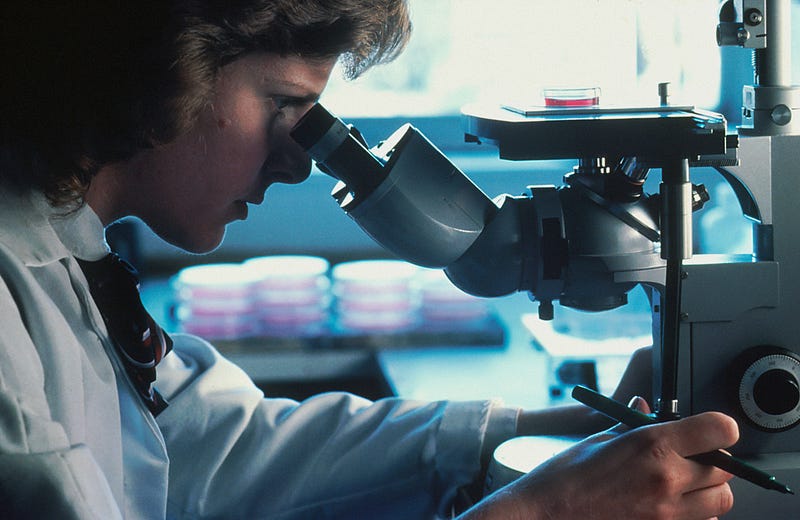From Failing Science to Embracing Curiosity: A Journey of Wonder
Written on
Chapter 1: The Unexpected Turn
At the onset of Year 9, our science instructor administered a quiz, resulting in a ranking system that categorized us from "most intelligent" to "least capable." The top performer occupied a seat at the front, while I found myself relegated to the back corner, three from the last. The embarrassment was palpable; boys' schools can be particularly harsh environments.
My new classmates included a couple of rebels who had seemingly abandoned their studies, intent on making my experience as difficult as possible. Consequently, any remaining enthusiasm I had for science evaporated, leaving me to focus solely on survival in that hostile academic setting.
Historically, I hadn’t struggled academically in science, but the classes were tedious. Instruction often revolved around rote memorization rather than the thrill of discovery. Even during experiments, we merely replicated known procedures rather than engaging in genuine exploration.
I had anticipated the dissection lesson as a potential turning point, but instead, I was left without that experience due to our teacher's aversion to such activities. By the end of the year, I was left with a single thought: I was not cut out for science, leading me to abandon it in my subsequent studies.

Chapter 2: Defying Expectations
Education is what remains after one has forgotten what one has learned in school.
— Albert Einstein
Contrary to what my science teacher might have envisioned, my life took a different path. Although I didn't pursue science in school or as a career, it influenced various aspects of my life, primarily due to my inherent curiosity.
As a child, I spent considerable time outdoors, which naturally sparked my inquisitiveness. Activities such as starting fires with various materials or constructing rafts to test buoyancy were instinctively scientific.
By eleven, I developed chronic allergies. Unprompted, I began a personal food-elimination experiment to identify the culprits behind my discomfort. This habit of self-exploration continued throughout my life, leading me to investigate social sciences informally, driven by curiosity rather than formal study.
My insatiable appetite for knowledge has resulted in a diverse library, heavily populated with nonfiction—particularly scientific literature. My daily news feeds are filled with articles spanning health, astronomy, ecology, and neuroscience, reflecting my diverse interests.
Even if I had been inclined to study science, the idea of limiting myself to a single discipline would have felt constricting. My curiosity transcends boundaries, allowing me to connect ideas across different fields.
I also explore personal growth and spirituality through a scientific lens, always cautious about accepting information at face value. I rigorously test ideas to ensure their validity, seeking consistent and reliable outcomes before drawing conclusions.
Chapter 3: Science as an Art
I am enough of an artist to draw freely upon my imagination.
— Albert Einstein
Many people recognize Einstein's assertion that "imagination is more important than knowledge." Yet, it's his perspective as an artist that captivates me most.
I perceive science less as a rigid process and more as a mindset characterized by curiosity and wonder. For instance, Nate Byrne, a weather and science presenter on ABC News Breakfast, embodies this spirit. His enthusiasm for new discoveries radiates joy, reminding us that science is not merely about facts but the excitement of exploration.
Through his presentation, Byrne encourages viewers to identify themselves as scientists, reshaping the limiting narratives from my past. While I wouldn’t advise my younger self that "you truly are a scientist," perhaps failing at science in school was beneficial, steering me away from traditional scientific pathways.
I believe in nurturing curiosity in children, fostering an educational environment centered on discovery.
Chapter 4: Rethinking Science Education
The only thing that interferes with my learning is my education.
— Albert Einstein
Standardized testing and rigid curricula often stifle creative subjects. The pressure to measure and compare students through uninspiring topics undermines the goal of nurturing lifelong learners.
True education should ignite meaningful inquiry rather than merely pursue irrelevant answers. Science education, particularly in Australia and the U.S., faces challenges in attracting dedicated teachers. While compensation issues are often cited, the core problem may run deeper.
Imagine a science education system built on principles of curiosity and discovery. Regardless of whether students enter STEM fields, we need a society filled with inquisitive and critical thinkers.
Perhaps the most significant lesson science can impart is a sense of wonder—the joy in experiencing the unexplainable. This, I believe, is the enduring legacy of Albert Einstein, who not only contributed groundbreaking theories but also emphasized the transformative power of curiosity and imagination in education.
As National Science Week unfolds in Australia, I reflect on the inspiration from figures like Nate Byrne who motivate me to engage with science thoughtfully and passionately.
Facing Failure: What It Takes to Be Good at Science explores the resilience required in scientific endeavors, emphasizing that failure can be a vital part of the learning process.
Ask a Scientist: What Does Failure in Science Mean? delves into the significance of failure in scientific inquiry, highlighting its role in growth and understanding.